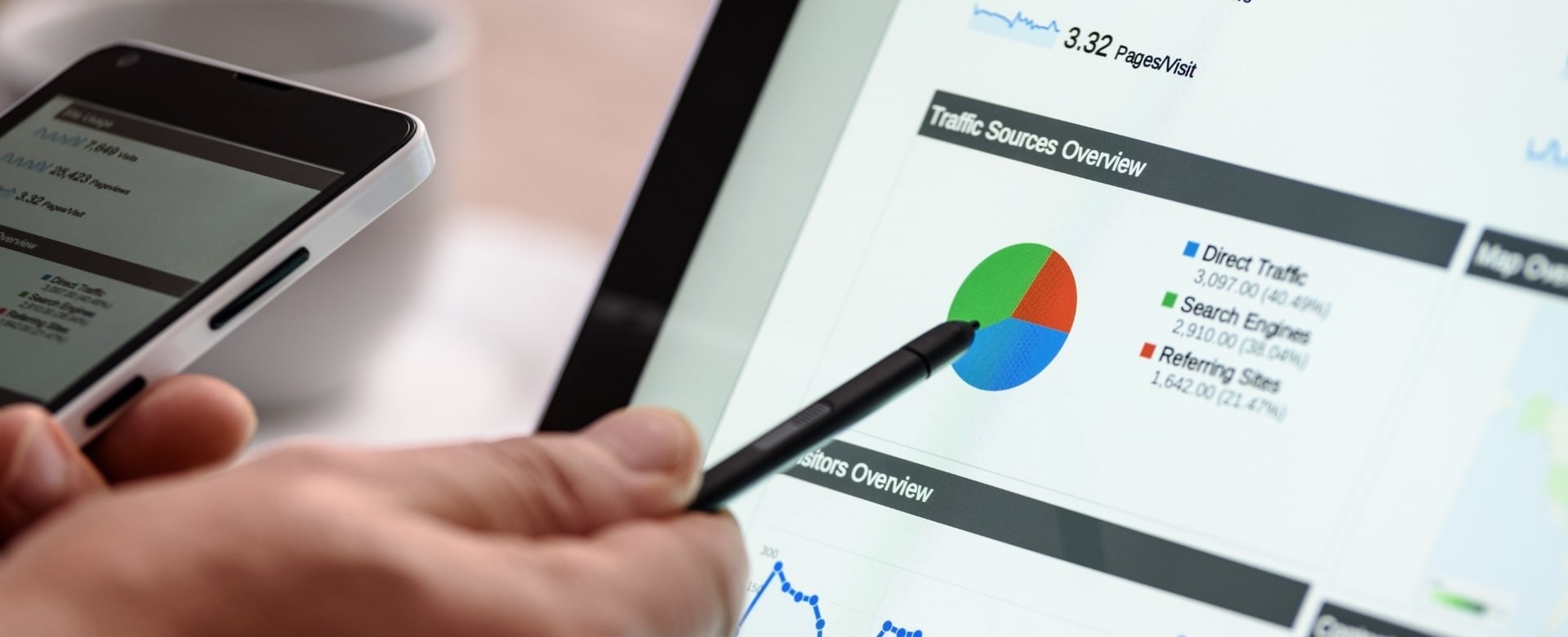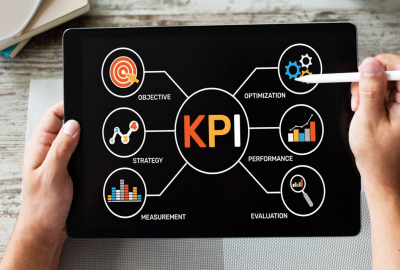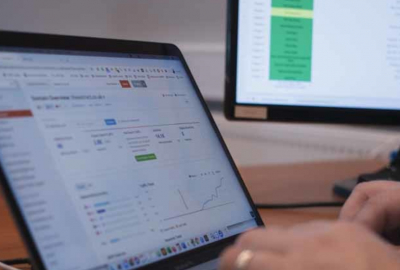SEO and advertising are twin pillars for any marketing strategy to dominate search engine rankings. A digital marketing strategy that simultaneously leverages both, is better suited to quickly rope in leads and increase brand awareness.
Google receives over 70% of all web traffic. Thus to dominate the search engine you have to excel in the two promotional methods it offers– SEO and PPC advertising.
Before jumping into the nuances it is important to understand the types of advertising on search engines. Let us elaborate.
Types of Search Advertising
There are two types of search activities you can do on search engines:
SEO: SEO or Search Engine Optimisation deals with the set of activities undertaken to improve the visibility of your website on search engines.
Each search engine aims to provide the user with the best experience in their search endeavour. Ultimately, businesses who desire to attract traffic from these search engines must provide good customer experience to appear on the search engine. This is best done by creating relevant and useful content that is relevant to the search query or keyword.
This process of optimising websites to fulfil the needs of customers and subsequently improve rankings on search engines is called SEO. This process, however, takes time, spanning days, months or even a year. Search engines take time to consider a variety of factors before assigning the right position for a web page.
Search Advertising or PPC: In contrast, advertising on search engines is all about paying the latter for your website to appear on top. Commonly called PPC or Pay-Per-Click ads, they can be seen above the pages ranked by SEO means. Businesses who want quick results and don’t have the capital to wait for SEO to bring results can adopt PPC.
In comparison, PPC is faster when SEO and advertising are pitted against each other. PPC takes only a few days to appear on search engines as opposed to SEO that produces results like ageing wine.
SEO and advertising have many overlapping concepts but are two different promotional platforms.
SEO Vs PPC Advertising
The table below summarises the differences between and SEO and advertising:
SEO |
PPC Advertising |
|
|---|---|---|
| Costs |
|
|
| Traffic |
|
|
| Factors |
|
|
| Activities |
|
|
| Placement |
|
|
| Assets |
|
|
| Targeting |
|
|
5 Questions to Help You Decide When To Use SEO and PPC
You have to consider a variety of factors to ascertain the best medium for you. To begin with:
How Big Is Your Marketing Budget?
With advertising, you can be assured of quick results. However, PPC ads work on a cost per click basis– you pay only when someone clicks on your ads.
Your spending will vary depending upon the competition in your niche. The higher the competition the more you might have to spend to see your ad on top.
However, SEO procures no such expense. Content is king in SEO. The brand with better, useful and relevant content ranks higher. It’s as simple as that.
SEO is not completely free. You have to invest in quality resources to produce good engaging content.
However, Search engines do not charge you for every click, unlike PPC. So if you have little or no money, then SEO is the way to go.
Got The Time And Resources To Monitor The Changing Search Engine Landscape?
If no, the SEO is a no go for you. Search engines update their algorithms often. One day it is to do with content and the next is to do with the niche. These changes can practically change your SEO efforts overnight.
PPC offers no such hindrance. As long the payments keep coming, Google does not hinder the steady influx of visitors to your web pages.
What Are Your Goals?
Ultimately, SEO and advertising strive to bring in more sales. However, they follow two different paths.
SEO is best for business when you want to:
- Increase brand awareness
- Generate a consistent stream of relevant traffic
- Grow your authority over a particular niche.
The influx is steady as long as your content answers the user’s queries. Even if you take a short break from creating content users will continue to visit your content. In the long run, your content will create enough word of mouth awareness through social shares and brand mentions to invite free traffic.
Thus, SEO breeds consistent traffic which can result in better brand awareness and sales.
PPC works for businesses whose focus is only on leads and sales. You get quicker results and you can optimise your campaign based on the performance of your ads.
How Is The Competition In Your Niche?
Competition affects any marketing activity across all platforms and niches. This holds for SEO and advertising as well.
Competition affects SEO and PPC in different ways:
SEO Keyword Difficulty: Keyword difficulty is the measure of competition competing for a particular keyword. Analysing keyword difficulty helps you understand the ease with which you can rank web pages for particular keywords using SEO tactics.
Average CPCs: In PPC, competition in a particular niche is measured by the calculating average CPC for a particular keyword. You can use Google Ads’ Traffic Estimator to determine the average CPC in your industry.
You can interpret these metrics to decide where the cut-throat competition lies. If the average CPC is higher for the terms you want to target, then an SEO strategy will pay off well.
In contrast, if your target keywords are dominated by high authority players in your niche, then you’d be better off focussing your energy on PPC.
Is Your Promotion Time-Bound?
Due to the precarious nature of SEO, you cannot depend on it to promote or sell a time-bound product. You have to hand it over to PPC for excelling here.
Promoting services or products or seasonal offers is easier and achievable using PPC advertising. Moreover, targeting is way better here with options to combine demographics with interests and shopping intent.
How Can SEO And PPC Advertising Work Together?
Although they have their distinctions, SEO and PPC can be used together to dominate search engines.
Where one falls short, the other excels. Using your PPC keyword data, you can usher in quick sales as your SEO sweetens the deal.
Gain Customer’s Confidence By Dominating Both PPC and SEO
By simultaneously appearing on PPC ad placements and organic search results, your brand gets represented better on search engines. Being ubiquitous is not only attractive to you but creates a perception of authority among customers as well.
Although the marketing techniques used are different, both, SEO and PPC work based on keywords you target. By appearing #1 among PPC ads and among the organic results you boost your authority and brand awareness.
Moreover, using both PPC and SEO you can target customers all across the marketing funnel. You can attract users who are researching with SEO. Simultaneously, using paid advertising you can attract bottom the funnel users who are in the mindset to purchase.
Remarketing to SEO traffic using PPC Advertising
Although ranking on SEO brings in relevant visitors to your site, it does not always mean they convert as customers. Potential customers and leads need time to evaluate their options.
You can get ahead of their rationale by pushing your display ads to these visitors. This activity is called remarketing. Using remarketing, you can remind visitors of your brand and convince them to discounts or personalised offerings to engage with your brand.
In the long run, this encourages brand awareness and draws in repeat traffic to your site. This hits the user experience nerve of Google’s algorithm, resultantly, boosting your SEO rankings.
PPC Helps Improve Your SEO Keyword Research
One of the main pros of PPC is its ability to return marketing intelligence sooner than SEO. By using PPC for a few months, you can generate enough keyword and conversion data to boost your SEO efforts.
Using this data you can excavate keywords to create content for SEO. You can be more assured of this keyword data, as it is already tested for conversion via paid ads.
A/B Testing
No marketing campaign meets perfection without testing. Similarly, your SEO titles and meta descriptions need to be changed with constant testing.
A/B testing refers to conducting small experiments on the text and visual elements of your ad copies and landing pages. This helps you understand what works best for your ad campaign.
For example, you can run an ad campaign with the word “discount” in the ad copy for a week. Let’s call this version A.
The following week you could replace “discount” with “bargain”. Let’s call this version B.
If you notice changes in quality score, conversions, etc then, you could choose whichever version of the ad worked best for you.
Thanks to PPC’s disposition to bring in quick results you will have a treasure chest of data on what titles and descriptions attracted most clicks. You can A/B test your ads and use the data to optimise your SEO titles and meta descriptions.
Conclusion
Choosing between SEO and advertising can be a difficult decision to make.
SEO improves rankings and brings in free traffic to your website. However, long term planning and consistency are key here.
PPC offers laser focussed targeting. You pay only when someone clicks on your ad. Once you are past the learning curve, PPC ensures that you get highly relevant traffic with unambiguous search intentions.
Do you need help with dominating search results? Contact us today.






